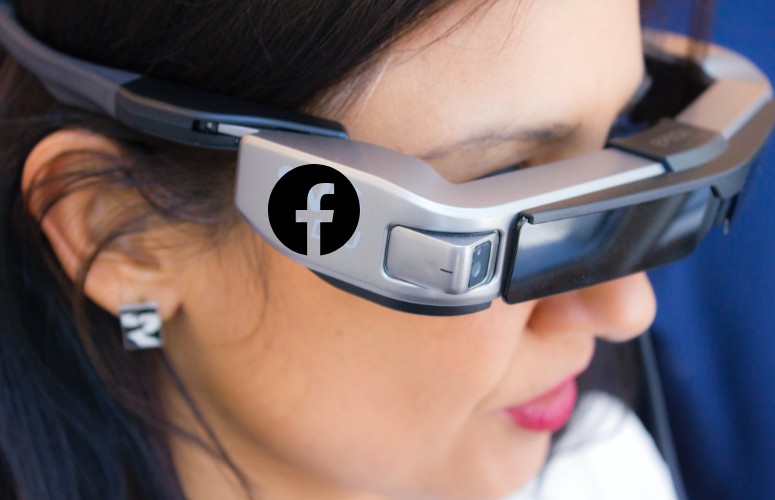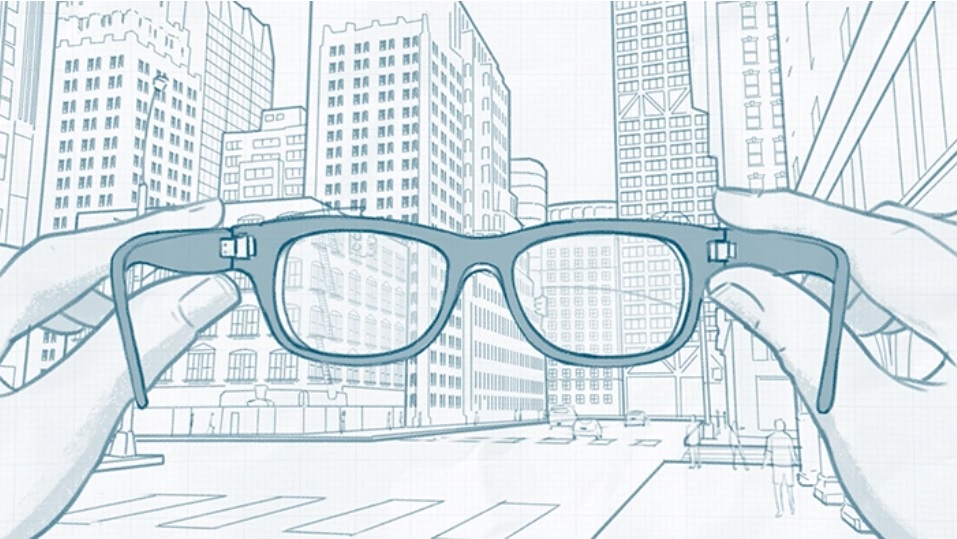Facebook AR glasses could replace your laptop — here's what it can (possibly) do
Science fiction is about to become a reality

Facebook is working on a pair of smart glasses that could potentially replace your laptop and phone. The social media giant, already making waves in the VR industry with its Oculus headsets, is ready to dive into augmented reality (AR).
Facebook's AR smart glasses sounds like it was ripped from the pages of a science fiction novel, but the Mark Zuckerberg-run company plans to materialize its far-out vision into reality in the near future.
- Facebook AR glasses will give you superhero hearing — even in loud places
- Facebook smart glasses will launch this year — but it's not what you expect
Facebook's vision for its AR smart glasses
In a recent blog post, Facebook pulled the curtains back on its smart-glasses project, giving us a glimpse of the social network's vision for its AR head-mounted display — and it sounds too good to be true.
"Imagine a world where a lightweight, stylish pair of glasses could replace your need for a computer or smartphone. You’d have the ability to feel physically present with friends and family — no matter where in the world they happened to be — and contextually-aware AI to help you navigate the world around you, as well as rich 3D virtual information within arm’s reach," Facebook said.
Facebook added that its ideal AR smart glasses would allow its users to participate in the digital and real world simultaneously. You wouldn't need to peel your eyes away from a screen to be present. Instead, the digital and real world will be interacting with each other without you needing to move a muscle.
How Facebook's smart glasses will replace your laptop and phone
Imagine you're in a cafe with Facebook's AR smart glasses on. Instead of whipping out your trusty laptop or phone, you can use your head-mounted display that pairs with haptic gloves. "A virtual screen and keyboard [will] show up in front of you and [you'll] begin to edit a document. Typing is just as intuitive as typing on a physical keyboard," Facebook said.
If the cafe is too loud, the smart glasses will use special in-ear monitors and active noise cancellation to soften the cacophony.
Stay in the know with Laptop Mag
Get our in-depth reviews, helpful tips, great deals, and the biggest news stories delivered to your inbox.

Facebook also noted that its smart glasses will have an AI assistant that can ask you questions such as, "Do you want to listen to the latest episode of your favorite podcast?" or "Do you want me to put in an order for a 12-ounce Americano?” With just an easy flick of a finger, you can respond with a yes or no.
You can receive calls, too. If you're in the middle of a conversation, the smart glasses can be configured to not interrupt your interactions and send the call to voicemail. You can also add content to your calendar on the head-mounted display. As the event draws closer, you'll receive visual reminders.
Facebook experimented with a number of different ways that users can interact with the device, including hand gestures, voice commands, and selecting items from a menu by looking at them, which are possible via hand-tracking cameras, a microphone array, and eye-tracking technology, respectively.
As it turns out, the social media giant is leaning toward using wrist-based EMG technology, which decodes finger signals that communicate your intentions to the AR device.
Facebook is tapping into the expertise of research scientists, engineers, neuroscientists, and more to make these out-of-this-world smart glasses a reality. Personally, I'll be one of the first ones to snag Facebook's smart glasses if it can, indeed, replace my laptop and phone.
Apple and Google are also reportedly working on their own AR devices. We're excited to see which brand will nab the greatest share of the smart-glasses market.
Kimberly Gedeon, holding a Master's degree in International Journalism, launched her career as a journalist for MadameNoire's business beat in 2013. She loved translating stuffy stories about the economy, personal finance and investing into digestible, easy-to-understand, entertaining stories for young women of color. During her time on the business beat, she discovered her passion for tech as she dove into articles about tech entrepreneurship, the Consumer Electronics Show (CES) and the latest tablets. After eight years of freelancing, dabbling in a myriad of beats, she's finally found a home at Laptop Mag that accepts her as the crypto-addicted, virtual reality-loving, investing-focused, tech-fascinated nerd she is. Woot!

